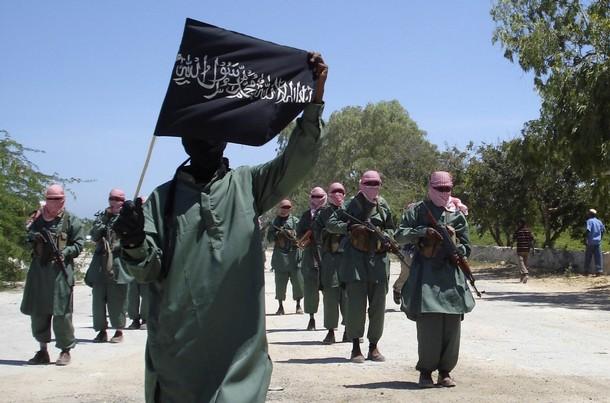Millions of shoppers are probably wondering if their weekend plans should be altered after the horrific events at Westgate Mall in Nairobi. Although it is certainly not the first violence that we have seen at a public mall, it is arguably the worst in recent years, and also the most disturbing. Masked gunmen held shoppers hostage for over four days, assassinating civilians and shocking the world. Over 60 people have been confirmed dead at this time, with 60 more unaccounted for. The bodies of some victims were found mutilated, dismembered, with gouged eyes and missing limbs. Most of the targets were wealthier Westerners, while Muslims in the mall were released without harm. Rumors are flying about who these terrorists were, their nationalities, and whether they will strike again.
It has been confirmed that al-Shabab, an al Qaeda affiliated terrorist organization from Somalia, was responsible for the attacks. They have warned Kenya that another attack will occur unless Kenyan troops are removed from Somalia. Kenyan has supplied troops for the African Union's intervention in Somalia since October 2011. Other attacks against Kenyans have occurred in recent months, but never to this scale.
The question for Americans is, does al Shabab pose a threat to United States national security? Should we be worried about possible attacks on our own malls and public spaces (more so than before?)? And if so, what is the extent of the threat?
Based upon the evidence, the shooting at Westgate can certainly be considered a threat to our national security. The targets of the attack were Westerners. Despite al Shabab's rhetoric concerning the rationale behind the attack, it is clear that they, like their affiliates in al Qaeda, deeply hate Western culture and values. Not only should we be concerned about the targeting of Westerners, but also the relative organization of the attack. Although it may be argued that Kenyan law enforcement simply was not prepared for such an attack, the very fact that the terrorists were able to hold hostages for over four days is alarming. This indicates that the attack was well planned and well executed. Whether this level of execution could be implemented further away in Europe or America is questionable, but something to be examined.
Not only is the attack clearly anti-West, but it also represents yet another indicator of the level of instability in the region. Somalia is clearly a failed state. The security vacuum within the country's borders has led to the resurgence of many militant groups, including al Shabab. This is a threat especially to the surrounding African countries, but also to the world. US involvement in Somalia in 1993 went so horribly wrong that it is highly unlikely that we will be intervening again. If the situation continues to spiral out of control, the African Union will be even more over their heads in terms of attempting to contain the threats.
Yet another reason why the Westgate attacks are a threat to our national security is that reports indicate several of the shooters were Westerners themselves. There are investigations of the possible involvement of the "White Widow," British-born Samantha Lewthwaite, as well as a few Canadians and Americans. In the United States, we need to continue to focus on these home grown threats. As we have seen in the Boston Marathon bombings and other recent shootings within the United States, lone wolf attacks are becoming more frequent. While the Westgate shooting was certainly not lone wolf, it brings up many concerns about the security in American malls and public spaces. Perhaps this event, thought tragic, will influence other nations to step up security in these spheres and hopefully prevent future attacks.



1 comment:
Here's a great NYT "Room for Debate" discussing this issue: http://www.nytimes.com/roomfordebate/2013/09/30/does-al-shabab-pose-a-threat-on-american-soil
My take is that al Shabab itself is a very minor threat to targets within America. Aside from aligning with al Qaeda there's no evidence that they are actually planning an attack on American soil. At most they might be part of the inspiration for a lone wolf attack, but it would be very difficult to provide any actual planning or material support to a Somali immigrant in Milwaukee, for example. Plus, they can now expect to face much greater pressure from Somali, Kenyan, and African forces going forward.
More worrisome is Al Qaeda and the small transnational terrorist element that joined the Somali Shaba movement and bears most of the responsibility for the mall attack. While al Shaba is mainly concerned with Somalia, Al Qaeda in East Africa has a global ideology, seeks to recruit internationally, and provides useful training and material and planning support. It's Al Qaeda that actually poses threats to U.S. targets in East Africa and that, while not having much capability at this point, aspires to attack targets within the U.S.
Post a Comment